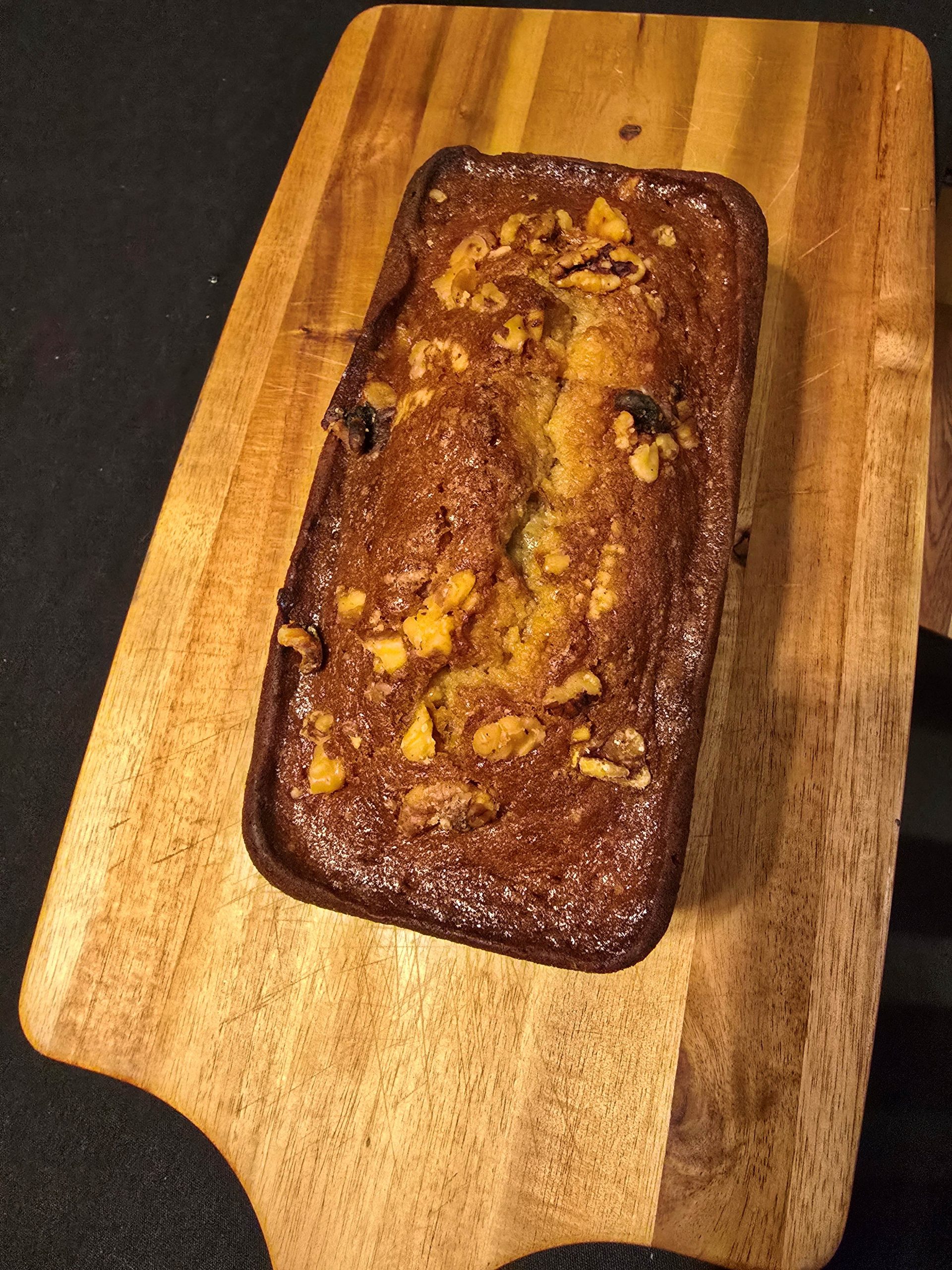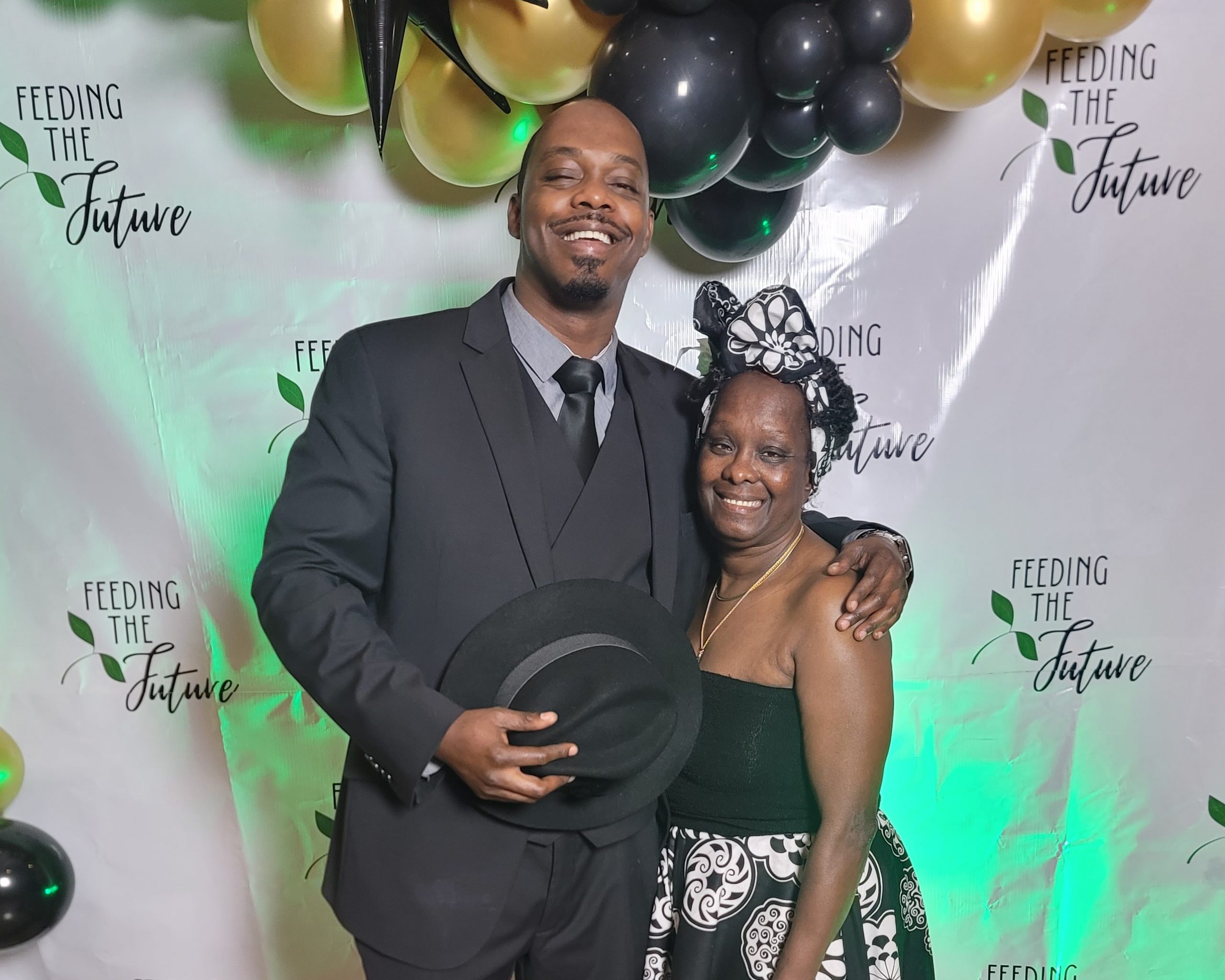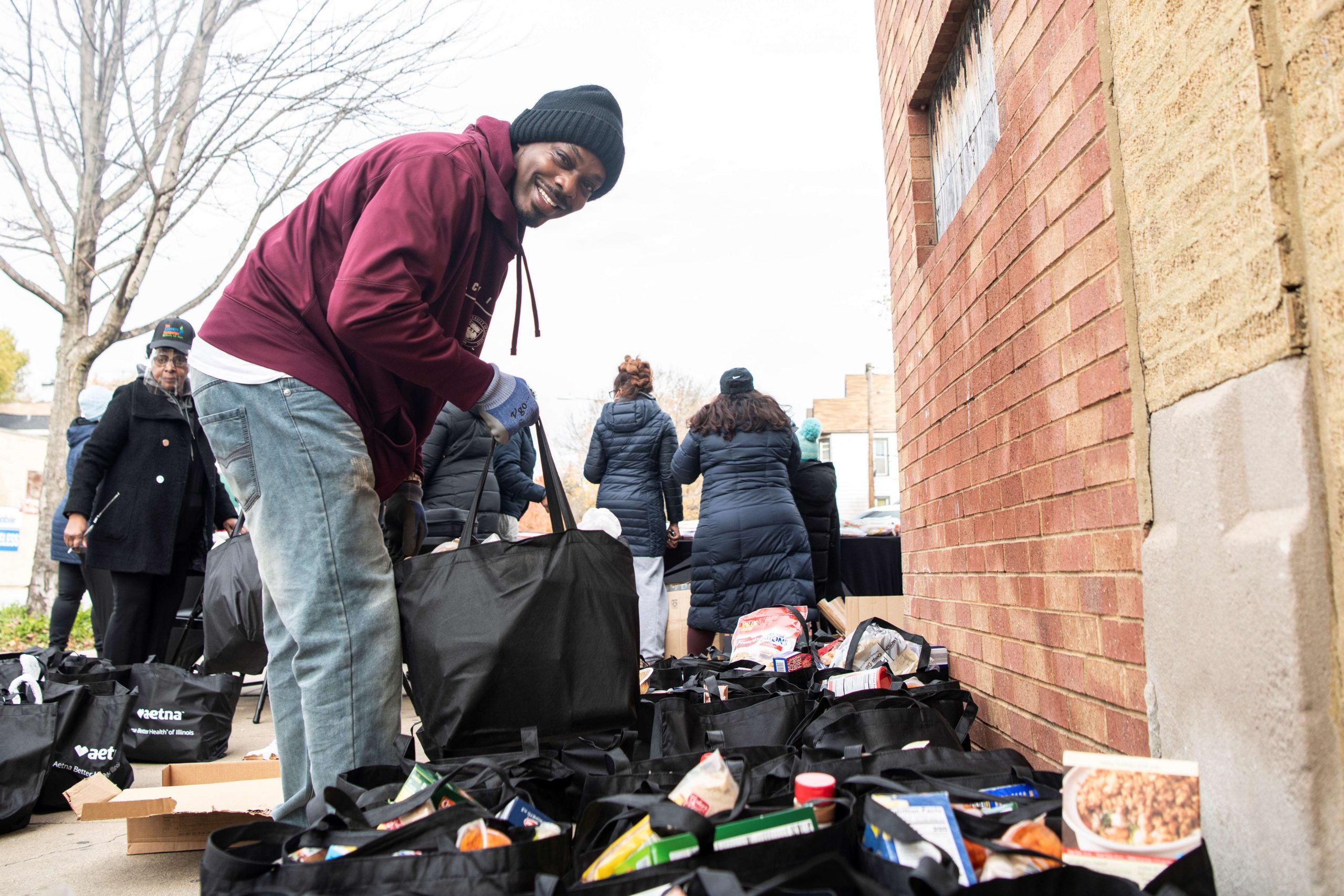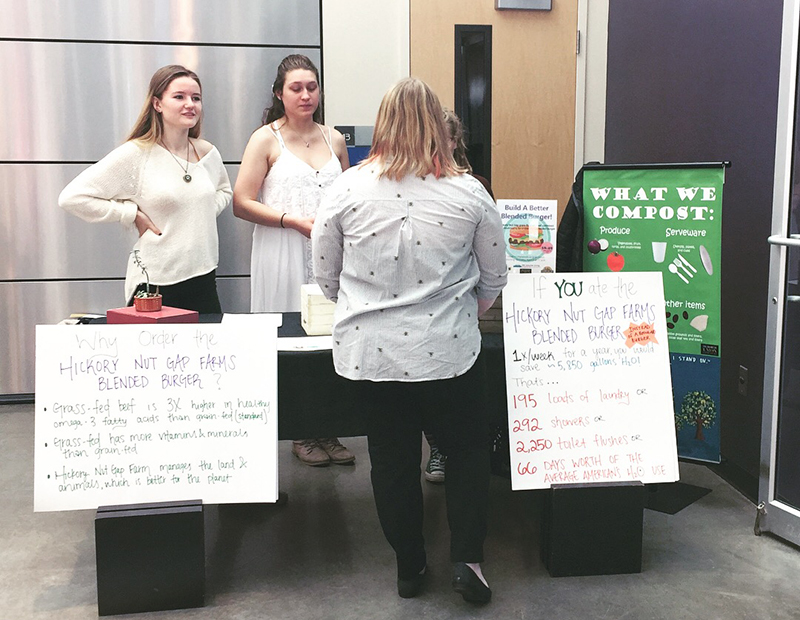
 Since Sustainability and Community Engagement Manager Amreh Hopkins was young, his family’s sustainable banana nut bread recipe was a staple at holiday parties and birthdays.
Since Sustainability and Community Engagement Manager Amreh Hopkins was young, his family’s sustainable banana nut bread recipe was a staple at holiday parties and birthdays.
In honor of Stop Food Waste Day, we spoke with him about how reducing food waste isn’t just a nice thing to do – it’s a way of life, and it all started with a loaf of banana nut bread.
How Does Your Banana Nut Bread Help Prevent Food Waste?
When bananas get too ripe and turn brown, many people think it’s time to throw them out. But throwing away food contributes to greenhouse gas emissions and represents a loss of labor and time.
The way my family reduces food waste is by using these overripe bananas to make banana nut bread. The ripeness helps create a naturally rich, sweet flavor that makes the dish even better. It’s also possible to reduce carbon impact more by using the peels as a natural fertilizer for the house plants. Using every part of the ingredient is another way to reduce food waste.

How is This Recipe Meaningful to You?
This recipe goes back over five generations, and my mother currently carries the torch in keeping this family tradition alive. It felt good to see the tradition passed down to my two daughters so they can share the same love of the dish and learn a recipe that helps the planet.
This banana bread is typically prepared during the holiday season, for special birthday sweets, or whenever a family member may ‘accidentally’ see 2-3 ripe bananas and request the banana bread be made. The two ends of the bread are the most delicious part of the bread, so in many cases, a family-friendly coin toss gives the winner the delicious edges of the banana bread.

How Does Sustainability Impact Your Life Personally?
To me, sustainability is a lifestyle. I love knowing that my small contributions to society have a positive impact on the greater good. Sustainability is at the core of my values and my daily endeavors, whether I’m educating my children, family, and friends about the benefits of sustainable living or reinforcing the importance of recycling, composting, and upcycling.

How did Your Recipe Help Inspire Your Career?
As a child, I really loved the idea of using what may be considered waste (like overripe bananas!) to make a dish that creates memorable moments. I have so many fond memories surrounded by family and friends, baking and enjoying this dish together.
I carried a lot of these values of waste reduction to other areas of my life, trying to reuse clothing or shoes, gardening in my backyard, and not allowing any food to go to waste.
I’m truly ecstatic and proud to work with an organization whose goals, mission, and values coincide with my personal agenda of sustainable development.
Try Out Amreh’s Family Recipe Today!
Incorporating overripe bananas that would have gone to the landfill, this recipe is an environmentally friendly dessert that supports sustainable living.



 Since Sustainability and Community Engagement Manager Amreh Hopkins was young, his family’s sustainable banana nut bread recipe was a staple at holiday parties and birthdays.
Since Sustainability and Community Engagement Manager Amreh Hopkins was young, his family’s sustainable banana nut bread recipe was a staple at holiday parties and birthdays.





